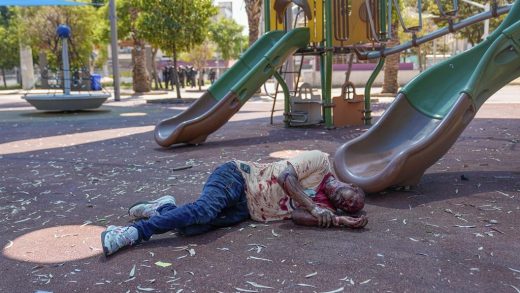
On justice
Re: Restorative justice hangs in the balance (Nov. 30)
Thank you to Katrina Clarke and Dan Lett for highlighting the plight of the wrongfully convicted. In the United States, some estimates suggest one out of 10 men on death row is innocent.
There are those who argue that the moral arc of the universe bends towards justice. But the reality is that our justice system is human and broken. Justice will only happen when we take a stand against injustice.
Mac Horsburgh
Winnipeg
Path of peace
Re: Be careful when talking to children (Nov. 30)
Faith columnist John Longhurst is indeed fortunate that he was raised by a family that did not teach him to chant slogans of hate.
As I read elsewhere in the Free Press of wars and rumours of wars, I am more convinced than ever that the only way to obtain peace on Earth is for parents everywhere to follow that example.
Larry Roberts
Winnipeg
Messages to youth
Re: Be careful when talking to children (Nov. 30); the looming prospect of nuclear war (Think Tank, Nov. 30)
It’s interesting to sense a “coming together” of the written word and lived experience. During a recent visit to the very impressive Royal Aviation Museum of Western Canada in Winnipeg, I was more than a little chagrined to see the display of a nuclear warhead and signage which gave the cold technical details of the weapon. Further along, I visited a room dedicated to the work of cartoonist Charles Schulz with a particular focus on the imaginary exploits of Snoopy and the Red Baron. I wondered if that room was designed to make light of the horrors of war.
In the Nov. 30 Free Press, I read two articles that reminded me of my museum visit: The looming prospect of nuclear war and Be careful when talking to children. In the first Alex Passey does not mince words in describing the realities of nuclear war. John Longhurst’s article about how the seeds of hatred are sown, often unintentionally, by the words kids hear (and may be forced to use) as they grow. I then remembered that during my visit to the museum, I saw a group of elementary aged children receiving a tour. I now wonder how they processed it all: the truly awesome capacity of humanity’s ability to create what was not long ago the stuff of dreams, and how it is that this same ability can be used to bring worlds together or to rend them asunder?
Coincidence? Perhaps, yet for me it was a reminder of the connectedness of things and how we adults form the minds and hearts of the next generation. We have a choice: to take on the clear vision of a dream of a world in which there is no fear of another. By watching the language we use with kids, we could change the world in one generation. To quote John Lennon: “Imagine all the people living life in peace.”
Edwin Buettner
Winnipeg
The value of mail
Re: Canada Post and the future of mail (Editorial, Nov 29)
This timely editorial topic deserves further discussion.
“Superboxes” (mail for multiple households left securely in a many-chambered unit on a community street) are intended to replace costly door-to-door delivery, and so consumers assume that significant savings result from use of these structures. Do the savings justify the inconvenience to mail recipients? If so, roll out more super-boxes wherever it would be practical!
Another debate is needed about the frequency of mail delivery. A reduced mail volume suggests three days rather than five days per week would suffice. The frontline workers would be able to deliver six times weekly if delivery days were alternated in neighbouring regions. The choice to work three days or six days would belong to the individual.
The idea of completely stopping the household mail service is unpalatable for several reasons, nostalgia being a minor one. A mail delivery person — trustworthy and conscientious — is generally respected for this work. Although ad-mail is not universally welcomed, personal mail has a place as a messenger for both business transactions and inter-personal communication. Some mail has informative value, whether in explaining a political candidate’s philosophy or a municipal service upgrade or a local bylaw change. This mail can also be tacked on a notice board for effective sharing.
Even if the cost of postage has to increase, and the frequency of delivery to decrease, the paper mail service has a role in many of our lives. No matter how seldom it happens, receiving a personal greeting or photograph from a friend is an irreplaceable pleasure, like the touch of a hand, especially for the very old among us.
Jean A. Paterson
Winnipeg
A difficult job
Re: Unwise, unfair to prejudge split-second life-and-death decisions (Nov. 27)
I wish to express agreement with what Tom Brodbeck said in this opinion piece. It strikes me as being exceptionally thoughtful and fair about a tragic situation with many dimensions.
Of course, every situation involving the use of force by the police resulting in serious injury or death must be properly and independently investigated. So, yes, let’s not jump to conclusions before all the facts that can be ascertained are known.
Moreover, I think it is important to acknowledge (in a context of transparency and accountability) the very difficult job the police have, sometimes involving split-second life-and-death decisions. It’s not a job I would want.
Gerald Farthing
Winnipeg
Demand more of representatives
It is time for Canadians to demand more from our elected representatives. The crises facing human beings come from our interactions with the natural world. Climate change is a prime example.
For centuries, scientists have been aware of the principle of cause and effect. What modern science has disclosed is the profound complexity of this principle. The ripple effect of cause and effect spreads through many disciplines — biology, physics and chemistry.
We must demand that our representatives have an interest in, and competency in, the hard sciences. Unfortunately, our representatives take refuge in sentimental gestures arising from white guilt. These gestures may salve our consciences but do nothing to mitigate crises in the natural world.
This is a big ask, but unless we have elected representatives with competency in science, we will simply be a society of guilt-stricken liberals (please note the small “L”) mumbling pieties.
Kurt Clyde
Winnipeg
History on the page
The Nov. 30 edition offered a remarkable range of valued historical features and demonstrated why readers have supported you for 152 years. You toasted your readers, and thank you, however, here’s a toast, right back at you for doing a fine job.
Your front page features the well-known picture of Louis Riel and his council which then links with the story on the signing of a key treaty between the Manitoba Métis Federation and federal government. A full page follows with The Governor General’s History Awards. The Think Tank section recalls the tragedy of Hiroshima linked to current-day threats we face. The paper then notes the restoration of Notre Dame in Paris after the disastrous fire in 2019. Then the 49.8 section address a tragic past, restorative justice and hopes for the future. In conclusion, in the Destinations section the sturdy, but much maligned Red River cart is featured.
I am past chair of the Manitoba Historical Society. History helps us learn and recall, “how we got to here!”
Like the Red River cart, history is challenging, often noisy, and progress can be slow, however, it did the job.
Thank you for doing your part.
Dan Furlan
Winnipeg


